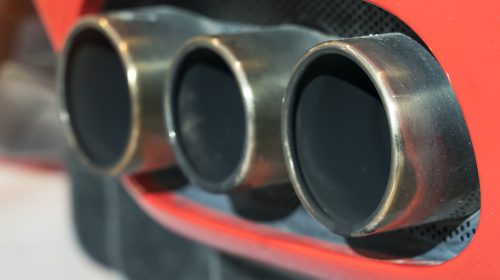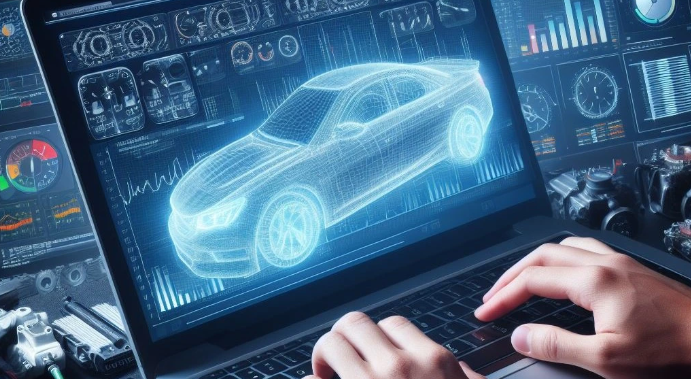
Table of Contents
Understanding Electric Cars and Their Mechanics
The Basics of Electric Vehicle Technology
Electric vehicles (EVs) represent a significant shift in automotive technology, relying on electric motors powered by rechargeable batteries instead of internal combustion engines (ICEs). Unlike traditional vehicles, EVs have fewer moving parts, eliminating the need for components like fuel injectors, exhaust systems, and multi-speed transmissions. Instead, most electric cars use a single-speed transmission, which efficiently delivers power from the motor to the wheels.
The simplicity of electric drivetrains contributes to smoother acceleration, reduced maintenance, and higher energy efficiency. However, this also raises an interesting question: Can an electric car be manual? While manual transmissions are a staple in traditional cars, their role in EVs is far less common—but not necessarily impossible.
Manual Transmission vs. Automatic Transmission
Manual transmissions require the driver to manually shift gears using a clutch pedal and gear stick, offering greater control over the vehicle’s performance. In contrast, automatic transmissions handle gear shifts independently, providing a more convenient driving experience.
In the context of electric vehicles, most models default to automatic-like operation due to their single-speed design. However, some automakers and enthusiasts have explored whether a manual transmission could be integrated into an EV to enhance driver engagement. This leads us to the central question: Can an electric car be manual?
Can an Electric Car Be Manual?
The Concept of Manual Electric Vehicles
At first glance, pairing a manual transmission with an electric car seems counterintuitive. Electric motors generate instant torque and operate efficiently across a wide RPM range, eliminating the need for multiple gears. However, some manufacturers have experimented with simulated manual transmissions to replicate the feel of driving a traditional stick-shift car.
For example, companies like Toyota and Hyundai have filed patents for “fake” manual transmissions in EVs, using software to mimic gear changes without a physical clutch. While these systems don’t improve performance, they cater to driving enthusiasts who miss the tactile experience of shifting gears.
Advantages and Disadvantages of Manual Electric Cars
Advantages:
- Enhanced Driver Engagement: A manual EV could appeal to purists who enjoy the hands-on experience of gear shifting.
- Customizable Driving Modes: Simulated manual transmissions could offer adjustable resistance and shift feedback for a more immersive experience.
Disadvantages:
- Increased Complexity: Adding a manual system to an EV could introduce unnecessary mechanical or software complications.
- Reduced Efficiency: Unlike traditional manuals, a simulated system wouldn’t improve performance and might even reduce energy efficiency.
Despite these challenges, the idea of a manual electric car remains intriguing. So, can an electric car be manual? Technically, yes—but it may not be practical for mainstream adoption.
Case Studies of Electric Cars with Manual Options
While fully manual electric cars are rare, some concepts and prototypes have explored this possibility:
- Toyota’s Simulated Manual EV: Toyota has tested a system where drivers can “shift gears” in an electric car using paddles, complete with simulated engine sounds.
- Hyundai’s N Vision 74 Concept: This high-performance EV features a dual-clutch transmission, blending electric power with a more engaging driving experience.
These examples suggest that while an electric car can be manual in a simulated sense, true manual EVs remain a niche concept.
The Future of Manual Electric Vehicles
Trends in Electric Vehicle Development
The automotive industry is rapidly evolving, with a strong focus on automation, connectivity, and sustainability. Most manufacturers prioritize seamless, user-friendly driving experiences, making traditional manual transmissions less relevant. However, as EVs become more mainstream, there may be a growing market for customizable driving experiences—including simulated manual modes.
Conclusion and Final Thoughts
So, can an electric car be manual? While traditional manual transmissions don’t align with the inherent design of EVs, innovative technologies are making simulated manual driving possible. Whether this becomes a standard feature or remains a novelty depends on consumer demand and technological advancements.
As the automotive world continues to innovate, the idea of a manual electric car may evolve from a curiosity to a viable option for driving enthusiasts. For now, the question remains open—but the possibilities are certainly exciting.




